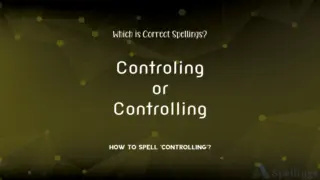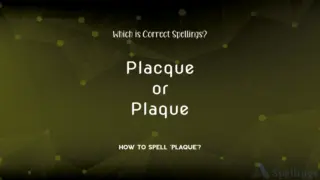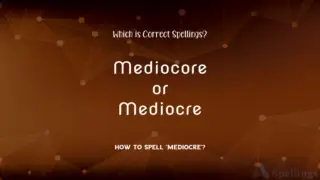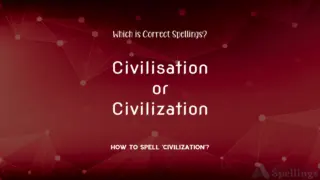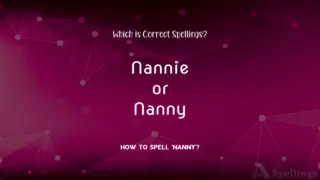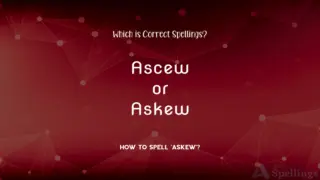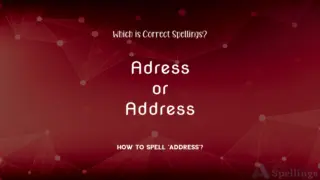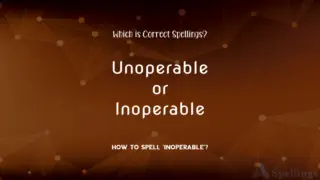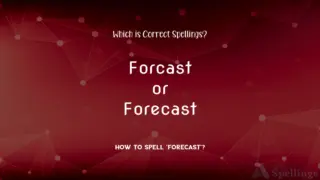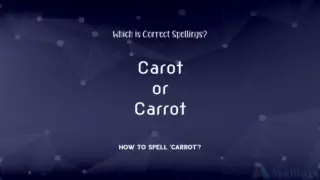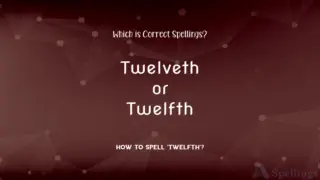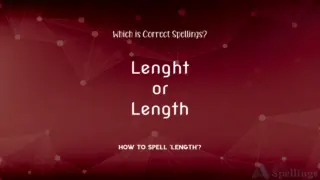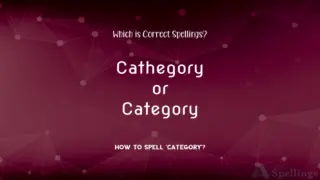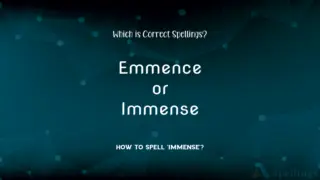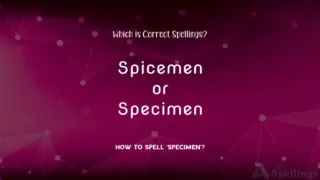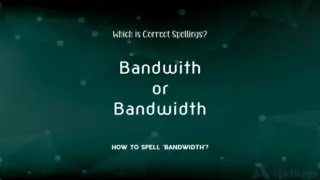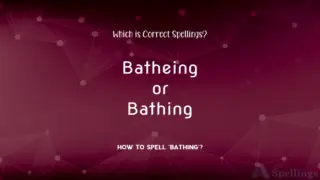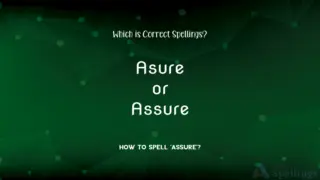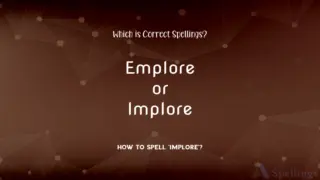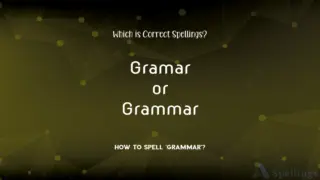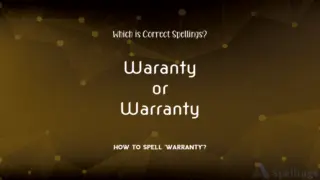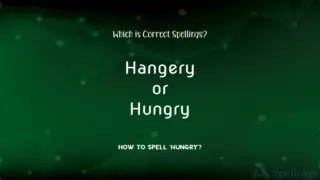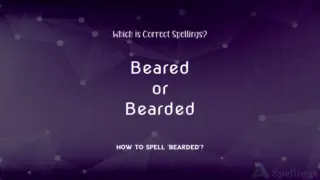Atend or Attend: Which is Correct Spellings?
"Atend" is the incorrect spelling of "attend," which means to be present at an event or to pay attention to something.
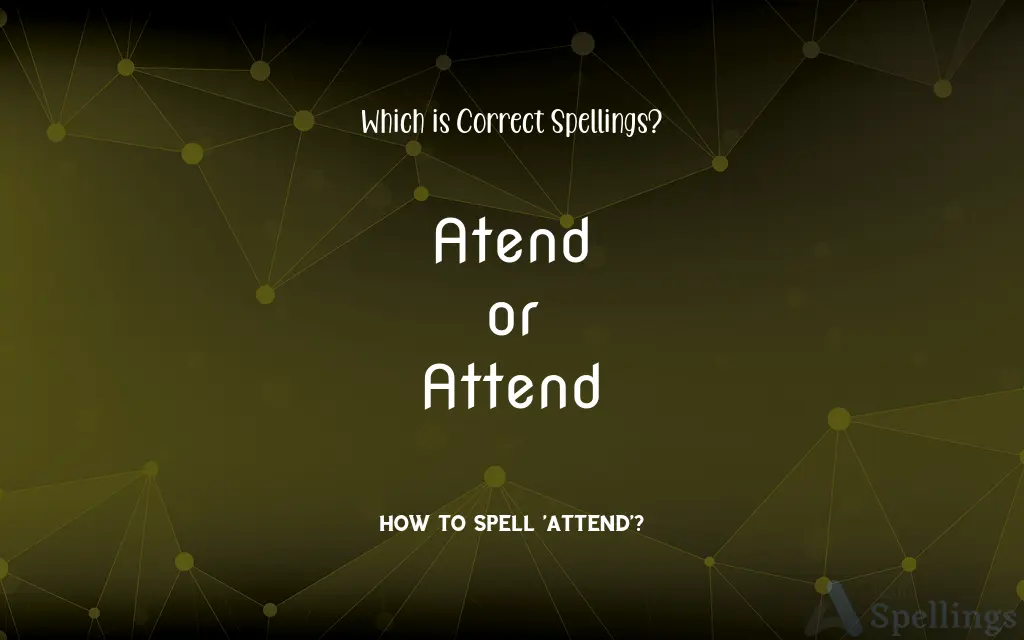
Which is correct: Atend or Attend
How to spell Attend?

Atend
Atend Spelling

Attend
Attend Spelling
Table of Contents
Is it Atend or Attend
Think of "attend" as combining "at" (indicating presence) with "tend" (from the Latin "tendere," meaning to stretch or extend), suggesting stretching one's presence or attention towards something.
Link "attend" with "attention," as both share the root "attent," indicating the act of focusing or being present.
Visualize "attend" as "at" (being present) + "tend" (to take care of), which fits the meaning of attending to something or someone.
Remember "attend" for the double "t," similar to other words with double consonants like "bitter" or "better" that emphasize the action.
How Do You Spell Attend Correctly?
Incorrect: Will you be able to atend the meeting tomorrow?
Correct: Will you be able to attend the meeting tomorrow?
Incorrect: You must atend school regularly to avoid falling behind.
Correct: You must attend school regularly to avoid falling behind.
Incorrect: Thousands of fans are expected to atend the concert.
Correct: Thousands of fans are expected to attend the concert.
Incorrect: She didn't atend to the warning signs.
Correct: She didn't attend to the warning signs.
Incorrect: The seminar was well atended by industry professionals.
Correct: The seminar was well attended by industry professionals.
Attend Definitions
To pay attention to; listen to or watch attentively.
Attend to the teacher's lecture if you want to do well on the exam.
To deal with or take care of something.
The nurse will attend to your needs shortly.
To be present at an event or activity.
They plan to attend the gala tonight.
To accompany or serve as a companion to someone.
The aide attends the senator at all public events.
Attend Meaning in a Sentence
She will attend the conference as a keynote speaker.
You need to attend carefully to the instructions provided.
The course requires students to attend all the lectures.
It's important to attend to the feedback from our customers.
His parents attend every one of his football games.
Please ensure you attend to the matter before the deadline.
He was unable to attend due to a prior commitment.
She attends a yoga class every Thursday evening.
The lawyer attended court proceedings on behalf of his client.
Please ensure you attend the mandatory training session.
Volunteers are needed to attend the registration desk.
Attend Idioms & Phrases
Attend to business
To deal with work or professional matters.
He went to the office early to attend to business.
Attend to one's needs
To take care of or address someone's requirements or wishes.
The hotel staff made sure to attend to all our needs during our stay.
Attend to the matter at hand
To focus on and deal with the current issue or task.
Let's attend to the matter at hand before discussing anything else.
Be in attendance
To be present at an event.
Many celebrities were in attendance at the charity ball.
Attend the school of hard knocks
To learn life's lessons through difficult or challenging experiences rather than formal education.
He didn't go to college but attended the school of hard knocks.
Common Curiosities
How many syllables are in attend?
"Attend" has two syllables.
How do we divide attend into syllables?
"Attend" is divided into syllables as at-tend.
Why is it called attend?
"Attend" is called so because it comes from the Latin "attendere," meaning "to stretch toward" or "to give heed to," reflecting the act of focusing one's presence or attention on something.
What is a stressed syllable in attend?
The stressed syllable in "attend" is the second syllable, "tend."
How is attend used in a sentence?
"Attend" is used as a verb to indicate being present at an event or giving attention to something, e.g., We're expected to attend weekly meetings.
What part of speech is attend?
"Attend" is a verb.
What is the pronunciation of attend?
The pronunciation of "attend" is /əˈtɛnd/.
What is the verb form of attend?
"Attend" itself is the verb form. Its conjugations include attends, attending, attended.
What is the root word of attend?
The root word of "attend" is the Latin "attendere," meaning "to stretch toward" or "to give heed to."
What is the third form of attend?
The third form (past participle) of "attend" is also "attended."
What is the first form of attend?
The first (base) form of the verb is "attend."
What is the opposite of attend?
The opposite of "attend" could be "miss," "neglect," or "ignore," depending on the context.
Is the word attend imperative?
Yes, "attend" can be used in the imperative mood to give a command or instruction, e.g., "Attend the meeting tomorrow."
What is the second form of attend?
The second form (past simple) of "attend" is "attended."
What is the singular form of attend?
The singular form of the verb "attend" is "attends," used with third-person singular subjects, e.g., "He attends the meetings."
Is attend a vowel or consonant?
The first letter of "attend," which is "a," is a vowel.
Is attend a collective noun?
No, "attend" is not a collective noun. It is a verb.
Is the attend term a metaphor?
The term "attend" itself is not a metaphor; it directly refers to the act of being present or giving attention. However, it can be used metaphorically in expressions like "attend to one's knitting."
Is the word attend a gerund?
When "attend" is used with "-ing," as in "attending," it can function as a gerund (a noun formed from a verb), e.g., "Attending the seminar is mandatory."
Which determiner is used with attend?
Determiners are not typically used directly with "attend" since it is a verb. However, when "attend" is used with a noun, determiners like "a," "the," "this," "that," "my," "your," etc., can be applied to the noun, e.g., "Please attend the meeting."
What is the plural form of attend?
The plural form of "attend" in the present tense is "attend," as in "They attend the meetings."
Is attend an abstract noun?
No, "attend" is not a noun; it is a verb. Therefore, it cannot be an abstract noun.
Is attend a negative or positive word?
"Attend" is neither inherently negative nor positive; its connotation depends on the context in which it is used.
Is attend a countable noun?
"Attend" is not a noun; it is a verb, so it is neither countable nor uncountable.
Is the word “attend” a Direct object or an Indirect object?
In a sentence, "attend" is a verb and thus does not serve as a direct or indirect object. However, it can have direct objects, e.g., "attend a meeting," where "meeting" is the direct object of the verb "attend."
Which article is used with attend?
Articles are not directly used with the verb "attend" but may be used with the nouns that follow "attend," e.g., "Please attend the conference" or "She decided to attend a seminar."
What is another term for attend?
Another term for "attend" could be "participate in," "go to," or "be present at," depending on the context.
Is attend a noun or adjective?
"Attend" is a verb.
Is attend an adverb?
No, "attend" is not an adverb. It is a verb.
Which vowel is used before attend?
The vowel used before "attend" depends on the word it follows. For example, in "to attend" and "will attend," the vowels "o" and "i" are used before "attend," respectively.
Which preposition is used with attend?
Prepositions commonly used with "attend" include "to," "at," and "in," depending on the context, e.g., "attend to a task," "attend at a venue," "attend in person."
Which conjunction is used with attend?
Conjunctions such as "and," "but," "or," and "while" can be used with "attend," depending on the sentence structure, e.g., "She will attend the workshop and the meeting."
Share Your Discovery
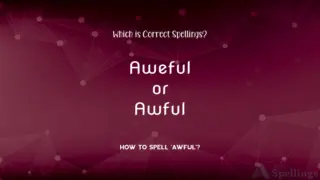
Previous Spelling
Aweful or Awful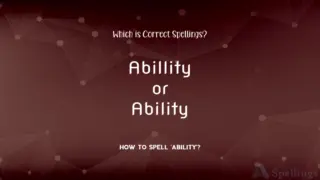
Next Spelling
Abillity or Ability
